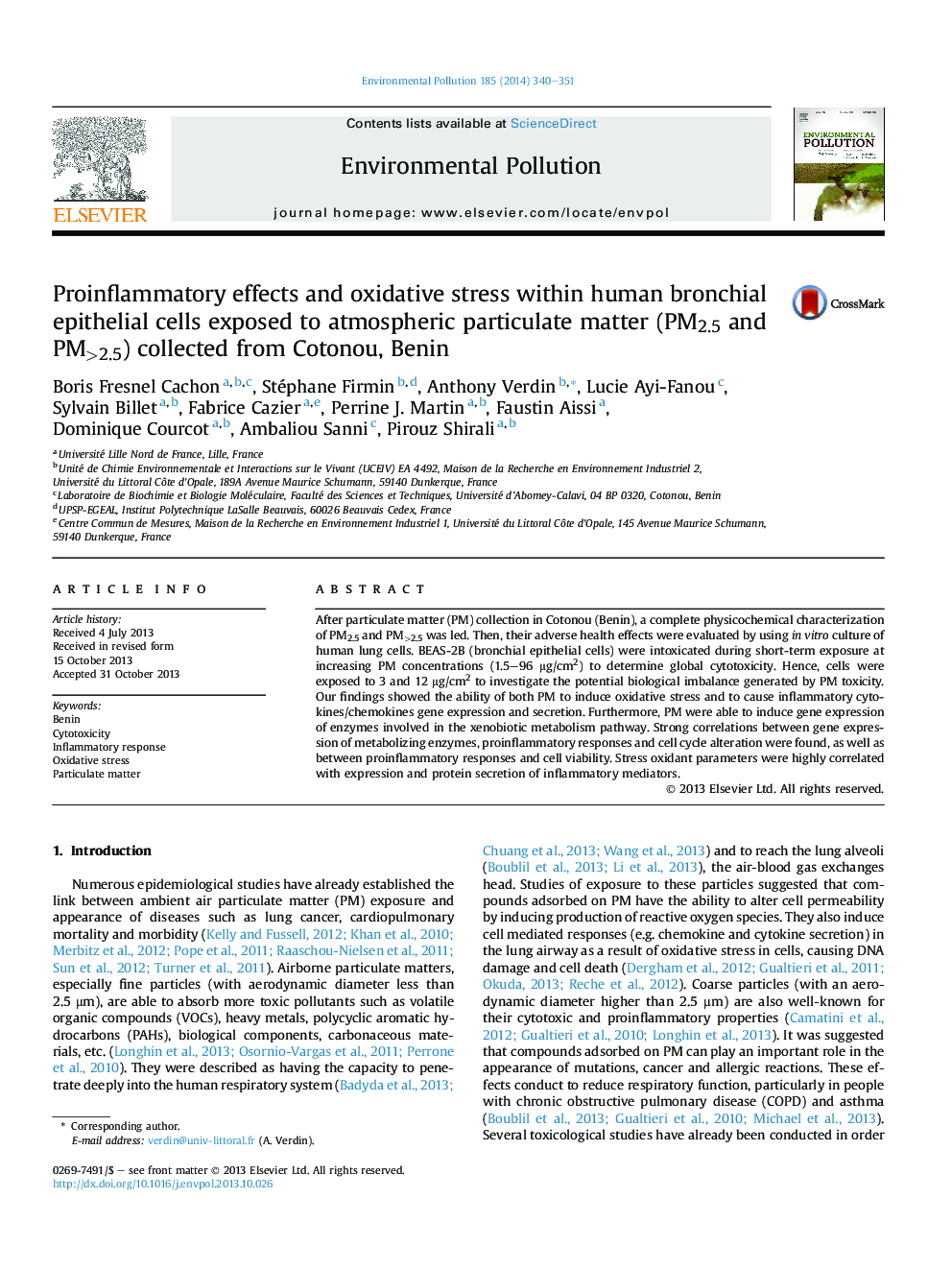| Article ID | Journal | Published Year | Pages | File Type |
|---|---|---|---|---|
| 6318270 | Environmental Pollution | 2014 | 12 Pages |
â¢The aim of this study was to investigate the toxic potential of collected particles.â¢Toxicological effects were determined by using human bronchial epithelial cells.â¢Both particles induced oxidative stress, proinflammatory response and cell alterations.â¢Metabolizing enzymes were linked to proinflammatory responses and cell alterations.â¢Oxidative stress was highly correlated to the proinflammatory mediators.
After particulate matter (PM) collection in Cotonou (Benin), a complete physicochemical characterization of PM2.5 and PM>2.5 was led. Then, their adverse health effects were evaluated by using in vitro culture of human lung cells. BEAS-2B (bronchial epithelial cells) were intoxicated during short-term exposure at increasing PM concentrations (1.5-96 μg/cm2) to determine global cytotoxicity. Hence, cells were exposed to 3 and 12 μg/cm2 to investigate the potential biological imbalance generated by PM toxicity. Our findings showed the ability of both PM to induce oxidative stress and to cause inflammatory cytokines/chemokines gene expression and secretion. Furthermore, PM were able to induce gene expression of enzymes involved in the xenobiotic metabolism pathway. Strong correlations between gene expression of metabolizing enzymes, proinflammatory responses and cell cycle alteration were found, as well as between proinflammatory responses and cell viability. Stress oxidant parameters were highly correlated with expression and protein secretion of inflammatory mediators.
Graphical abstractDownload high-res image (222KB)Download full-size image
